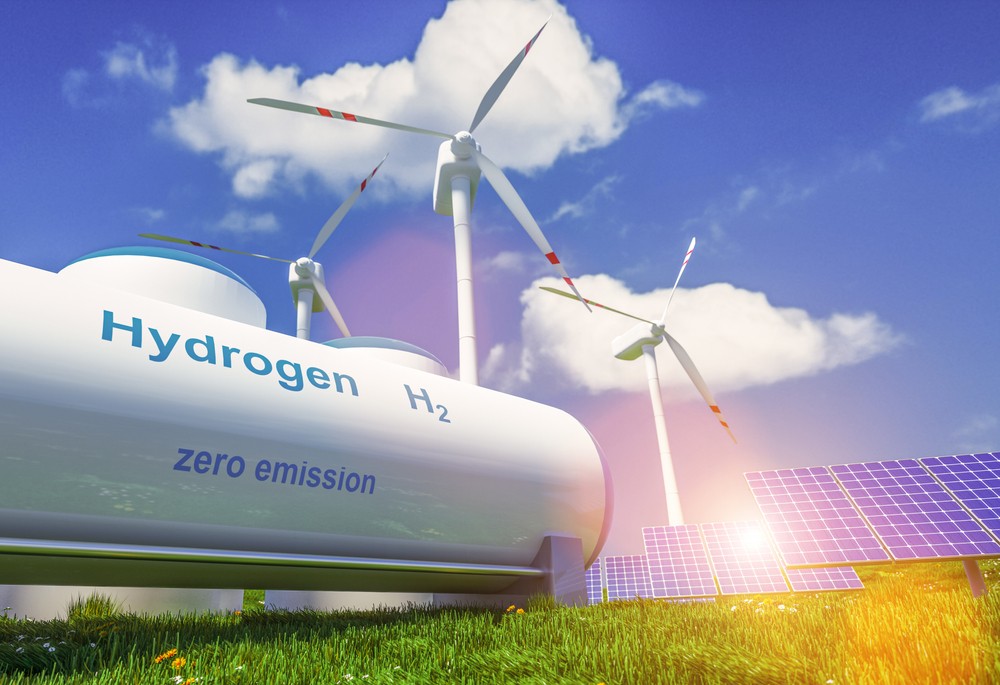🌿 Ruzu Non-Alcoholic Herbal Bitters
Ruzu Non-Alcoholic Herbal Bitters is a natural health supplement specially formulated to:
- ✅ Promote general wellness
- ✅ Detoxify the body
- ✅ Support the treatment of various ailments
Made from a powerful blend of 100% organic and medicinal herbs, Ruzu is completely alcohol-free, making it ideal for:
- 👪 All age groups
- 🌱 Health-conscious individuals
- 🌿 Anyone seeking non-alcoholic herbal remedies
Whether you're looking to boost your vitality, cleanse your system, or support healing the natural way, Ruzu Bitters offers a trusted herbal solution.
On Tuesday, November 26, the federal government called for infrastructure improvements in order to capitalize on the global hydrogen economy, which is expected to reach $200 billion by 2030.
This call was made in Abuja during the first national conference and exhibition on hydrogen by Ambassador Nicholas Ella, Permanent Secretary of the Ministry of Petroleum Resources.
The Federal Ministry of Petroleum Resources and the Foundation for Sustainable Social Responsibility in Emerging Africa (FOSSREA) collaborated to organize it.
According to the Permanent Secretary, the National Conference on Hydrogen offers a forum for important conversations about the infrastructure, funding, policy, and technology required to create a strong hydrogen economy.
He claimed that in order for Nigeria to take a piece of this growing market, large investments must be made in developing favorable regulatory frameworks, constructing electrolysers for the production of green hydrogen, and improving infrastructure.
According to him, one of the conference’s goals is to share the most recent scientific discoveries and technical developments in the production, distribution, storage, and use of hydrogen.
By 2023, nations including South Korea, Japan, and Germany had already pledged more than $70 billion to advance hydrogen technology and supply chains.
This highlights the significance of Nigeria establishing itself as an investment-friendly climate that can draw comparable foreign financial backing and collaborations, he said.
The main goal of the conference, he continued, is to have serious policy talks.
As the nation creates laws that guarantee safety and advance industrial standards for the use of hydrogen, he said the discussions are crucial.
Read Also: APGA Turmoil: Okorie Blasts Justice Omotosho for Targeting INEC
Global adoption of hydrogen could cut CO2 emissions by up to 6 gigatons a year by 2050, according to recent research, he said.
He added that Nigeria’s Nationally Determined Contributions (NDCs) call for a 20% reduction in carbon emissions by 2030, and that incorporating hydrogen into our energy ecology can help us reach this goal.
According to the Permanent Secretary, the private sector’s participation is essential to meeting the $50 billion investment that different financial analysts have said is required for Nigeria’s energy revolution.
“We are dedicated to advancing blue hydrogen by leveraging current gas resources and making sure that green hydrogen projects are in line with international sustainability standards,” he added.
Capacity building is a crucial part of this commitment. Training sessions and workshops at this conference are intended to give Nigerian professionals the technical know-how needed to work and innovate in the hydrogen industry.
Although hydrogen holds great promise, there are also considerable obstacles to overcome. With greater production scale and technological developments, the cost of creating green hydrogen is predicted to drop from $4 to $6 per kilogram to $1 to $2 per kilogram by 2030.
The building of pipelines, hydrogen refueling stations, and export facilities in particular is still a significant obstacle that requires concerted efforts from business and government parties.
These difficulties do, however, offer special chances for economic expansion, job creation, and innovation. According to projections, Nigeria’s hydrogen-based economy would provide over 300,000 direct and indirect jobs in the manufacturing, engineering, and service sectors by 2035.
The 2015 Paris Agreement, which was ratified by 196 parties at COP21, set the tone for climate discussions over the past ten years, Vice President Kasim Shettima said in his remarks.
He stated that Nigeria’s energy transition strategy has set a lofty target to achieve a net-zero economy by 2060, including natural gas as a crucial transition fuel and a pledge to achieve 9GW of renewable electric power production by 2030.
According to him, who was represented by Sadiq Waka, the Special Adviser to the President on Power, establishing a strong and diverse energy mix that takes into account the availability of local resources is essential to achieving Nigeria’s lofty goals. In this regard, hydrogen has become a crucial fuel for the country’s energy future.
Read Also: Police Arrest Suspect in Anambra for Smuggling Gun in Rice Bag
Global demand for hydrogen is predicted to soar from about 95 million tons now to more than 500 million tons by 2050, he said. Although hydrogen currently makes up less than 2% of the world’s energy consumption, it may increase to 10% by 2050 and, according to some estimates, as much as 20%.
He went on to say: “The potential for hydrogen to meet our domestic energy demands, service our burgeoning petrochemicals industry, and reshape our energy trade through exports cannot be overestimated, given our vast natural gas and renewable energy resources as a nation.”
By 2030, it is anticipated that the global market for hydrogen technology would have grown to a size of over $200 billion.
















